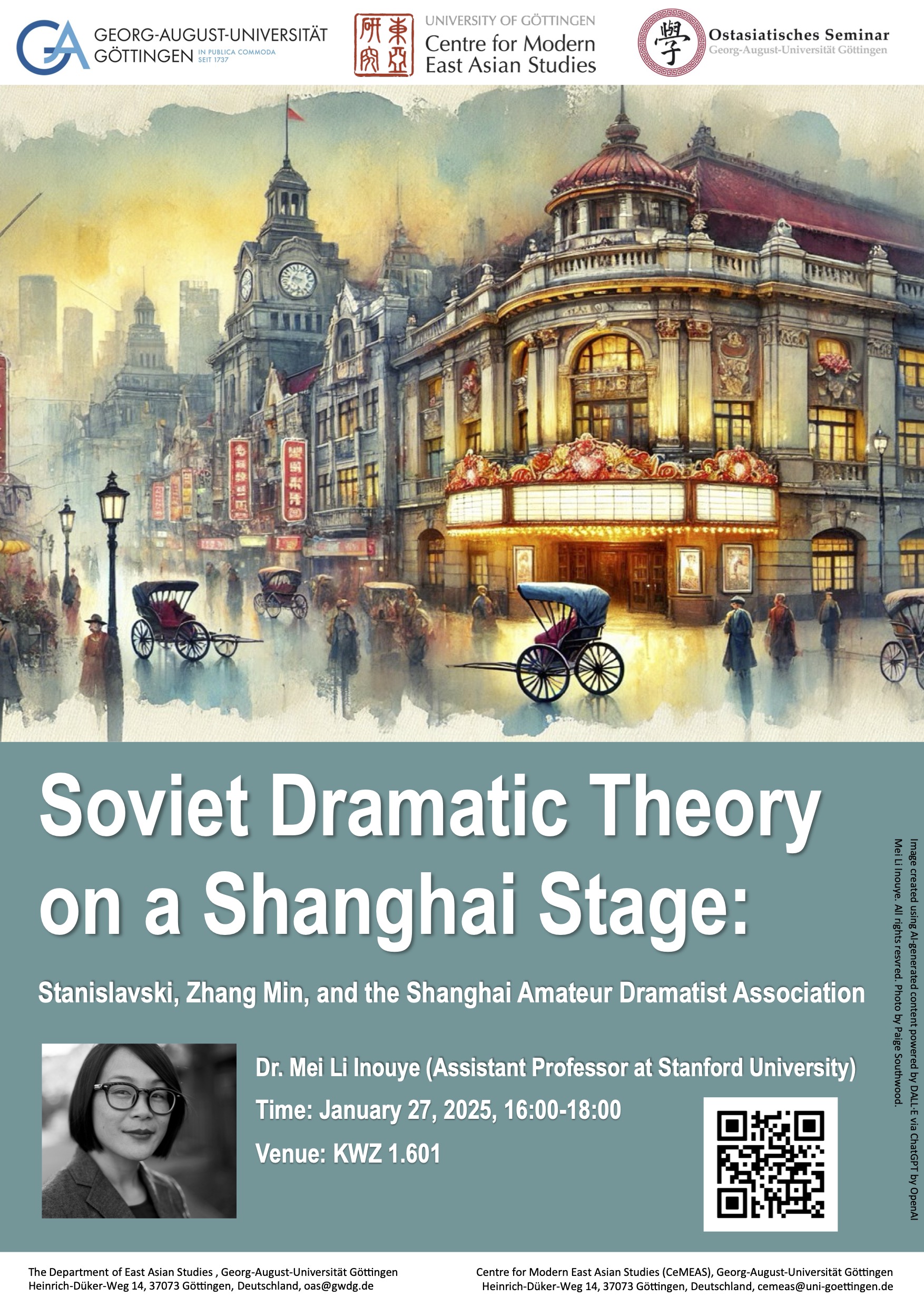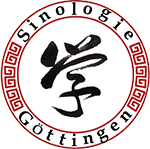
- Diese Veranstaltung hat bereits stattgefunden.
Lecture: Prof. Mei Li Inouye (Stanford University): Soviet Dramatic Theory on a Shanghai Stage: Stanislavski, Zhang Min, and the Shanghai Amateur Dramatist Association

Soviet Dramatic Theory on a Shanghai Stage: Stanislavski, Zhang Min, and the Shanghai Amateur Dramatist Association
Time: January, 27 from 4-6 pm
Venue: KWZ 1.601
Abstract: References to Stanislavski are commonplace in the historiography of Chinese socialist theater and cinema. Scholars have largely focused on translations of Stanislavski into Chinese as the starting point for Stanislavski in China, crediting director and actor Zheng Junli 郑君里(1911–1969) with the first translation of Stanislavski’s An Actor’s Works in 1943. However, Zheng Junli was not the only translator of An Actor’s Works. First introduced to Stanislavski by director and theater scholar Zhang Min at the Shanghai Amateur Dramatists Association during the 1930s, Zheng Junli worked as an actor under Zhang Min’s directorship and co-translated An Actor’s Works with him. This paper explores Chinese modern dramatists’ early reception and experiments with Stanislavski by attending to the elements of Stanislavski’s theories that received the most attention in practice. It demonstrates that Stanislavski’s system was a familiar system within acting and film circles prior to its translation and how the practice and circulation of Stanislavski within the elite circles of modern dramatist practitioners laid the ground for its widespread acceptance in the 1950s in the domains of both theater and cinema prior to being banned in the 1960s. This paper concludes with considerations of the effects of those experiments on actors and actresses who acted in those productions and who participated in the banning of Stanislavski in the 1960s.
Bio:Mei Li Inouye is an assistant professor of Chinese at Centre College with a Ph.D. in Chinese Literature from Stanford University. Her research interests include transnational exchange, gender politics, performance and remix studies in modern Chinese literature, theater, and visual culture. Her book project, “Performing Jiang Qing (1914-1991): Gender, Performance, and Power in Modern China,” examines the most powerful, visible, and reviled woman in the history of modern China as a cultural remix and durational performance that can help us understand the interplay of gender, performance, media, and power in the worlds she inhabited and the scholarship that has tried to understand those worlds. Her scholarship has been supported by a CLIR-Mellon Fellowship, the Stanford Humanities Center, and the Freeman Spogli Institute for International Studies at Stanford University. Her article, “Marketing Jiang Qing: Revolutionary, Modern Girl, and Dangerous Woman in Left-wing Cinema,” is forthcoming in the Journal of Chinese Cinemas. Her article, “Soviet Dramatic Theory and Dramas on Stage in 1930s Shanghai,” can be found in the fall 2022 issue (5.2) of International Comparative Literature.
